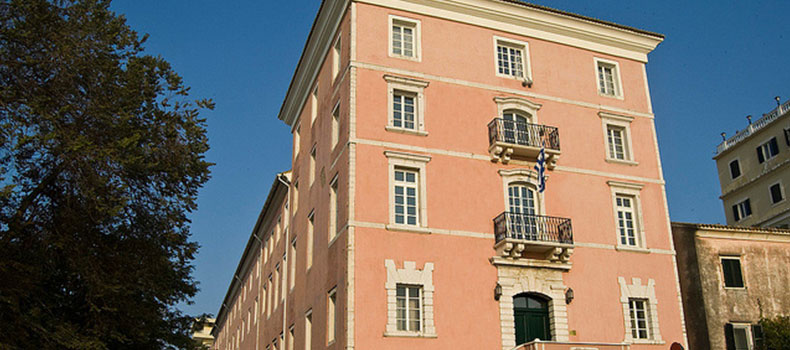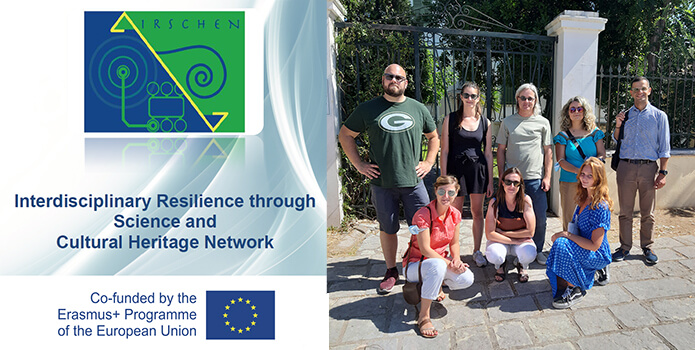The activities of the project Irschen (Interdisciplinary Resilience through Science and Cultural Heritage Network) continue at an intensive pace. Participants are the following bodies: University of Innsbruck (coordinator), Municipality of Irschen, Ionian University, Solidarity Tracks, Mobile 3D, ZRC SAZU (partners).
During the summer on 11 July -1 August the first scientific camp was held in Burgbichl. The scientific, historical and archeological interest focuses on the settlement discovered by the excavations at the top of the hill of Late Antiquity (5th / 6th century AD) with the name Burgbichl in Irschen (Carinthia / Austria) from the University of Innsbruck and the Austrian Archaeological Institute. The students who participated in the camp, had the opportunity to learn how to apply archaeological theory through practical experience. to critically evaluate an archaeological site within its historical and natural landscape and to analyze the findings of the excavation. The ultimate goal of the science camp was the documentation of archaeological finds and their transformation into digital form.
In order to investigate the level of digital skills and the digital readiness of the participants and their use of digital tools in the educational process, a research was carried out (Research and data processing was performed by Solidarity Tracks). This research came to interesting findings. Regarding the need of the respondents to learn more about how to use digital tools in the educational process, the findings demonstrated that there is a moderate need. However, the need varies greatly among respondents. The highest, but still moderate, need is found in the process of designing and teaching through learning objectives, writing or preparing digital content for students, adapting learning content and methods to the online learning environment, and managing online training courses with various platforms (M = 6.3). On the other hand, the lowest need, but also a moderate need, was expressed for the creation and delivery of AR (augmented reality) content to students (M = 5.4), using games and gamification as part of the teaching strategy (M = 5.6), creation and delivery of VR (virtual reality) content to students (M = 5.7).
The results of this research were used for the planning of the Short term staff training in Digital Readiness Training which took place in Lefkada on 8-12 / 9/2021. The good practices of digital education or digital tools were presented and demonstrated and practical training was conducted on other useful digital tools such as video editing, logo puzzles, jitsi, skribl.io. In addition, there was a discussion of more digital tools such as Mooc, the massive open online course, Moodle - a learning platform or course management system, and Trello - Trello a collaboration tool that organizes your projects into tables. The training was quite interesting and useful for understanding not only the importance of digital tools and how to use them but also the goals and purposes of the other participants.
The result of the above actions was the creation of the Good practices handbook (Responsible for the implementation of this toolkit is Solidarity Tracks). The good practices presented by the Project Coordinator and the Partners were mainly related to digital education and the assessment of digital skills for on-line teaching of cultural heritage. Other good practices demonstrated by Solidarity Tracks aim to support young entrepreneurs and integrate them into professional life or support them with online training, support and mentoring, and develop their ability to use modern learning methods related to non-formal education of young people and social technology based on virtual technology. As for the good practices presented by ZRC SAZU, they aim at the three-dimensional reconstruction of the archeological sites, especially those located at the top of the hills, as well as at the virtual visit to museums.
Last in the series of actions, but no less important, is the design of the Irschen Evaluation Template according to the instructions given by the Coordinators of the Project, the Innsbruck University (responsible for the creation and documentation of the information included in the template is the Ionian University). At present, the template includes information on the actions and Intellectual Outputs 1&2 implemented so far. In the future it will also include information on the transformation of archaeological findings into into e-learning material and thus the assistance of the on line educational process of the Cultural Heritage and proposals that emerged from the Intellectual Outputs 1 & 2.




 Programme evaluation
Programme evaluation











